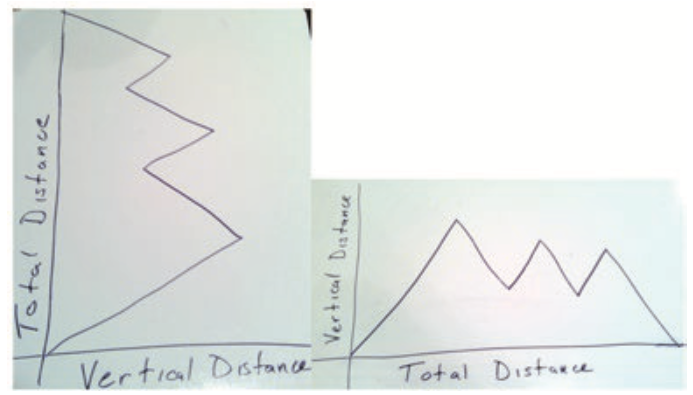an interdisciplinary field
- Kevin C. Moore
- Mar 4, 2023
- 4 min read
Updated: Mar 9, 2023
"What kinds of scholarship do they ignore?"
An always probing and insightful colleague asked this during a recent lament.

Mathematics Education is an interdisciplinary field at its core. Mathematics. Psychology. Sociology. Philosophy. Anthropology. Learning Sciences. Mathematics Education is and has been informed by each member of this non-exhaustive list. But, such interdisciplinary influences are becoming less and less apparent, especially as significant shifts and reconceptualizations take place in those fields.
The aforementioned lament occurred during a conversation in which I expressed frustration about our (I include myself in this use of "our") frequent inability as faculty and colleagues to interact in ways that embody how to build communities of trust, connection, and alignment. We engage in turf battles, whether real or imagined. We argue semantics when intentions and mission are aligned. We interact in ways to demonstrate authority or enlightenment when entirely unnecessary. Another non-exhaustive list, each acting counter to research findings on how to build the type of community we emphatically claim US school systems should reflect. We're an interdisciplinary field ignoring interdisciplinary research.
More generally, my lament had me reflecting on the broader phenomenon of how we (again, including myself in this pronoun) rarely analyze our work, and particularly the theories driving our work, in comparison to findings in other related disciplines. A case-in-point is research developments in neuroscience/neurobiology, which has seen numerous breakthroughs identifying neurological correlates to constructs of psychology and psychiatry. I'd be remiss if I did not mention that several colleagues are doing this work, including Dr. Shiv Karunakaran, Dr. Amy Ellis, Dr. Cameron Byerley, and Dr. Anderson Norton. But these are more exceptions than the rule in the broader mathematics education landscape.
To expand on the case-in-point, neuroscientists and neurobiologists have made significant strides in understanding human experience as it relates to the brain, mind and nervous system. Said simply, experience and knowing are patterns of electricity. But the human experience is not just patterns of electricity. Neuromodulators like dopamine, endorphin, serotonin, and oxytocin contribute to our experience. The interplay of deliberate thoughts, reflexive (or reflex) thoughts, reflexive emotions, and actions contribute to our experience. Our ability to be intentional with deliberate thoughts in response to reflexive thoughts and emotions contributes to our experience. Interestingly, such ability shifts with age, which has important implications for neuroplasticity including the extent it is passive or must result from intentional actions. Also of importance to note, the quality of our sleep contributes to our experience. Learning (neuroplasticity) occurs during particular sleep phases and NSDR. That's right, your students learn more in their sleep and relaxed states than in your classroom.
These findings are important for mathematics education. Take stress, agitation, or strain, something all of our students experience. In cases in which a student (or a research subject) endures what we classify as undue stress, it is easy for us to characterize social settings or factors as the cause of that undue stress. But, neuroscience teaches us that a more proper characterization involves considering the individual's perception of the social setting and factors. No objective social setting or factors exist. It is the individual's reflexive thoughts and emotions that shape their social experience. And those reflexive thoughts and emotions are shaped by their prior experiences. Tallman and Uscanga make this point in describing that affective responses are learned, and that common content approaches to mathematics are major contributors to the negative reflexive affective responses experienced by so many of our students. This framing, which is backed by neuroscience, opens up the potential space for response to students' undue stress. Rather than solely focusing on the social setting and factors as the researcher perceives it, the researcher must also give attention to the reflexive response and framing of the student, as well as their deliberate response to those reflexive responses.
As a related point, our work with graduate students should also heed these findings from neuroscience. With adults, agitation and strain are key triggers to neuroplasticity. Quality sleep and NSDR are also key to neuroplasticity. Thus, when our graduate students experience agitations and strain, we must be careful not to immediately look to remove that agitation or strain and its cause. We must also be careful not to engender, promote, or embrace framings that reject those things that cause agitation or strain solely on principle. Such framings can breed agitation with agitation or strain, thus undermining or removing the critical learning opportunity provided by the agitation or strain while also amplifying negative stress impact. We should instead act as allies with them in respect to that agitation or strain, which means working to understand the source of stress and the extent the stressor and related responses are antecedents to learning. With regards to sleep, we should all ensure we are mentoring in ways that give attention to the rest (and exercise) our graduate students experience. In some ways, mentorship regarding rest and exercise plays a more critical role in their learning than any direct instruction or insightful commentary we provide.
I acknowledge that researchers adopt perspectives and framings that aim to disrupt, deconstruct, or implicitly ignore the perspectives, framings, and assumptions that drive work like that in neuroscience. Such work is important. It provides its own unique and often complementary insights. But, I do not believe such aims excuse those researchers from being well informed of findings in other fields. Outright rejecting or ignoring another field's findings and body of knowledge merely on the basis of theoretical incompatibility or dogma is unproductive, if not dangerous in a field concerned with human learning. It is on all of us, no matter our theoretical bent, to always consider the viability of our theory and theory-informed work against the backdrop of findings in other disciplines.






